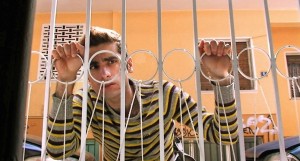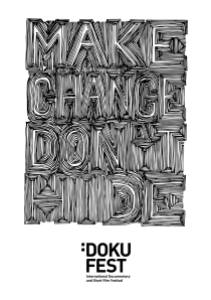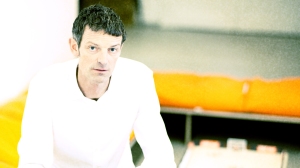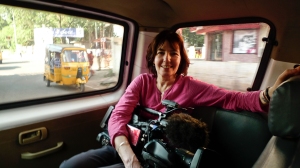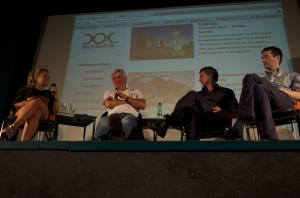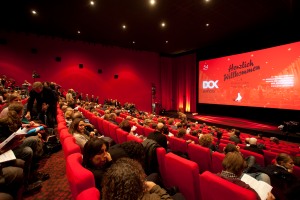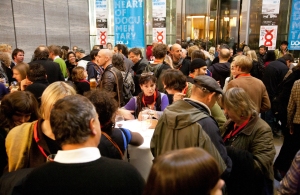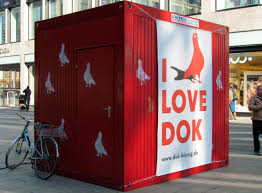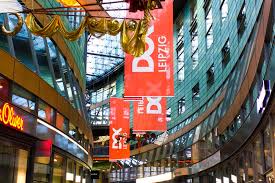
This is the second year running that a Prix Europa award has gone to a Finnish production - last year the documentary The Punk Syndrome scooped the best TV documentary prize for its colorful portrayal of a rock band suffering from learning disabilities.
This year it was a Finnish documentary who has won the Prix Europa award for Best European TV current affairs programme in Berlin!

Syria - Faces of War was chosen for its "serious, crucial and honest" view of real war. The film is based on the photographs of Finnish photographer Niklas Meltio, and is directed by Yle's Vesa Toijonen and Ari Lehikoinen. Accepting his award, director Ari Lehikoinen dedicated the win to all the journalists killed during the Syrian conflict. And here is the interview with both the directors Vesa Toijonen and Ari Lehikoinen.
How would you describe the world that we live today to someone who does not know anything about it?
The world is a mess. There are an awful lot of things going on that need understanding and explanation. Learn from yesterday, live for today, hope for tomorrow.
What was your personal experience in Syria?
VESA: It was not as bad as I expected - after following the media coverage. I compared the situation with my experience in Sarajevo during the war. In Aleppo there was electricity and running water even in the front line. We had tea and there was a possibility to use toilet before filming the fighters. In Sarajevo this was out of question!
There seemed to be food and medicine available - unlike, again. in Sarajevo. And of course Aleppo was not besieged like Sarajevo - nobody stopped us from driving into the city. No way in Sarajevo.
The city of Aleppo was destroyed but less than one could expect according to news reports. Buildings in the front lines, yes, but a couple of blocks behind the lines the life continued quite normally. But the life was not normal, that is sure.
ARI: Wars have to be portrayed authentically, although many seem to think it doesn’t really go with your morning coffee. Wars are often sugar-coated in the media. We try to avoid that. Our film was shoot from 2012 to August 2013. The situation is now much worse.
What were the difficulties that you have to overcome while shooting and editing the film? In Aleppo and in Syria we faced the normal difficulties: snipers, risk of shelling and air-bombing. We took a lot of time to avoid the troops that had started kidnapping visiting foreigners. Yet, we managed to have lunch in a same restaurant with al-Nusra fighters.
In the desert between Iraq and Syria the most difficult was to balance between the desperate refugees and your own feelings to help them. And yet you can not - we are there to film their escape, not to distribute water or food. Some people understand, not everyone.
When we start cut the film the editor said; “What a hell, so much stills, don’t you know that we should make a movie!”
Did you try to make an objective film?
VESA: We always do, but personally I learned a very important lesson in Sarajevo when I tried to explain the concept of objectivism in Western journalism. "So you mean that we should all be treated equally, also the sniper who is trying to kill me when I carry water buckets and can not escape", my landlady asked me one cold morning. We waited a "safe" moment to fill the water tanks in her apartment. Since that discussion I think that there is a difference between a sniper and a victim and objectivity is not always the main purpose.
ARI: There is such fine line between the objective documentary and biased one. It’s quite hard to find a documentary which I would consider to be truly objective, but I do think that it’s possible to objectively capture reality in some documentaries.
The only way to give face to this war, was to be on the ground with the men, women and children who are central to it.
Please describe your film in 2-3 lines.
It is a true story.
War is ugly. True faces of the war; raw, grotesque and full of tears and pain.
What can't we see in the film?
The most horrified pictures .
We were also very careful choosing images of patients in a psychiatric hospital in Aleppo. People were left alone in a makeshift hospital, without medication. We wanted to respect these people and left out most of the pictures.
What is your next film about?
ARI: My film is “Skeleton in the closet”. It’s totally different film than “Faces of war”. It’s one man’s story. We all have secrets: the ones we keep, and the ones that are kept from us.
VESA: One carries working title "Frozen war". It is about the conflict in Eastern Ukraine. the war has stopped - but only for a moment and there are speculations that Russian politicians would like to freeze the situation as it is now - to control it better.
People living in war torn villages do not care about speculations. They would like to get their houses warm before winter comes. Refugees would like to go back but they can not. They suffer between war and peace. We also show how a real "frozen war" looks like. Refugees in Nagorno-Karabakh have waited 20 years that one way or another the confict could be solved and they could return to their houses. But the houses do not exist any more. Only ruins are left. - so is this also the future for Ukraine?
It seams to me that a lot of people in Europe have forgotten or care less about what is still happening in Syria. Why?
We have a nice word for this: we "war-fatigue". We grow tired when there is no progress. Actually we all grow tired, not only journalists and our audiences, but politicians who try to find solutions, aid workers, even fighters become apathetic or desperate. And local people, both those who decided to stay and refugees in camps all over Middle East.
See the trailer here






